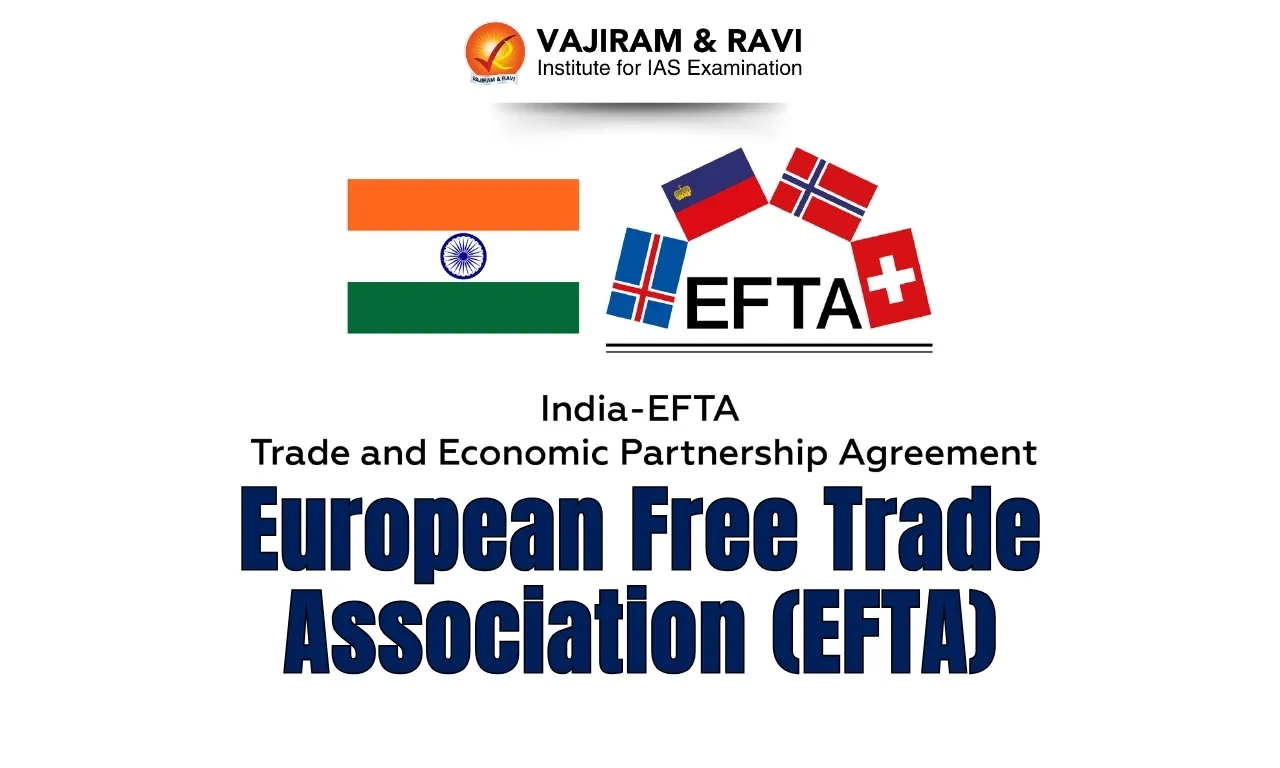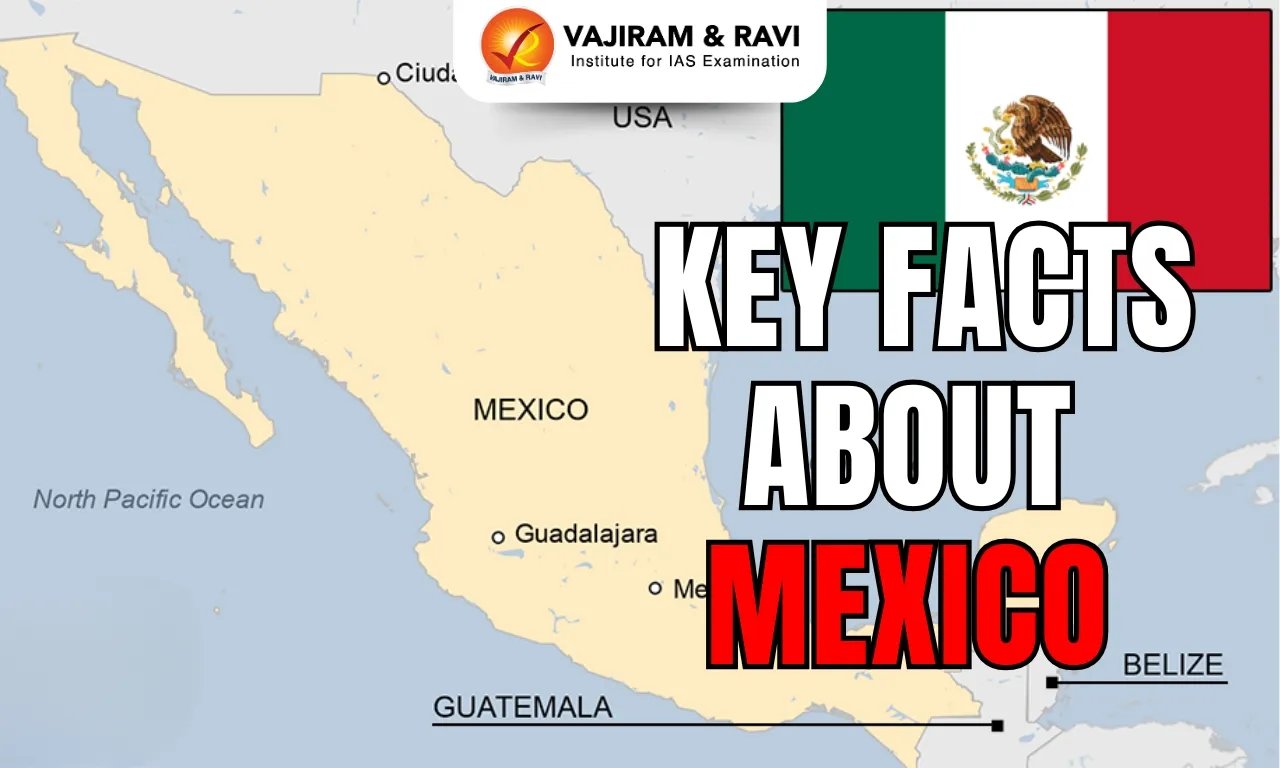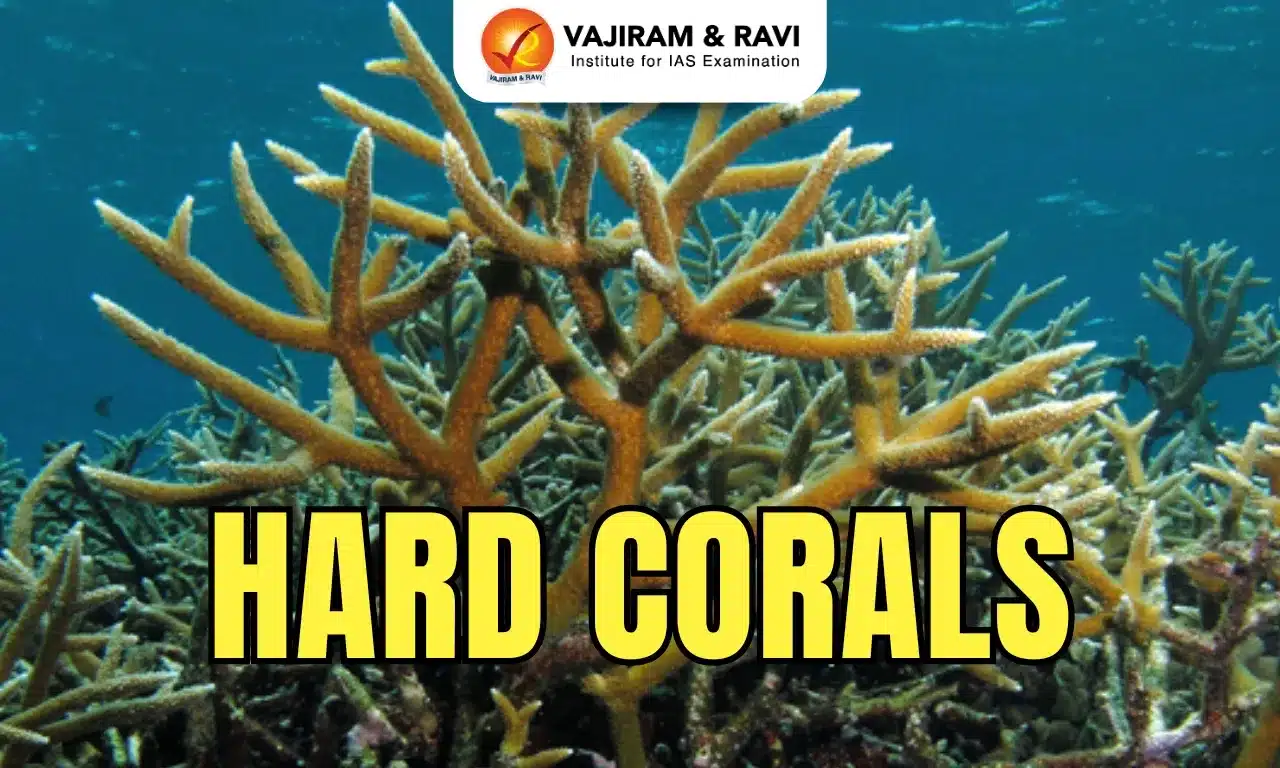European Free Trade Association Latest News
The Union Minister of Commerce and Industry recently said the Free Trade Agreement (FTA) between India and the four-nation European bloc ‘European Free Trade Association’ (EFTA), will be implemented from 1st October.
About European Free Trade Association
- It is an intergovernmental organisation established in 1960 by the Stockholm Convention.
- Objective: Promotes free trade and economic integration between its members within Europe and globally.
- Member Countries:
- There were 7 founding countries: Austria, Denmark, Norway, Portugal, Sweden, Switzerland, and the United Kingdom (UK).
- They were joined in 1970 by Iceland, in 1986 by Finland, and in 1991 by Liechtenstein.
- Meanwhile, in 1973, Denmark and the UK joined the European Union (EU); in 1986, Portugal joined the EU, and, in 1995, Austria, Finland, and Sweden joined the EU, consequently leaving EFTA.
- EFTA currently has 4 member countries: Iceland, Liechtenstein, Norway, and Switzerland.
- The four EFTA States are all open, competitive economies committed to the progressive liberalisation of trade in the multinational arena and in free trade agreements (FTAs).
- The association is responsible for the management of:
- the free trade between the EFTA countries;
- EFTA’s participation in the European Economic Area (EEA), which includes the European Union and three EFTA countries (Iceland, Liechtenstein, and Norway, but not Switzerland);
- EFTA’s worldwide network of FTAs.
- In contrast to the European Union (EU), EFTA is not a customs union. This means that the individual EFTA States are free to set their own customs tariffs and arrange other foreign trade measures vis-à-vis the non-EFTA States.
- The EFTA countries have developed one of the largest networks of FTAs. These FTAs span over 60 countries and territories, including the EU.
European Free Trade Association Governance Structure
- Its highest governing body is the EFTA Council. It generally meets 8 times a year at the ambassadorial level and twice a year at the ministerial level.
- The headquarters of the EFTA Secretariat is located in Geneva. It assists the EFTA Council in the management of relations between the 4 EFTA States and deals with the negotiation and operation of EFTA’s FTAs.
- EFTA Surveillance Authority (ESA): It monitors compliance with EEA rules in Iceland, Liechtenstein, and Norway.
- EFTA Court: It is based in Luxembourg and has the competence and authority to settle internal and external disputes regarding the implementation, application or interpretation of the EEA agreement.
- Its jurisdiction corresponds to that of the Court of Justice of the European Union in matters relating to the EEA EFTA countries.
Source: NOA
Last updated on December, 2025
→ Check out the latest UPSC Syllabus 2026 here.
→ Join Vajiram & Ravi’s Interview Guidance Programme for expert help to crack your final UPSC stage.
→ UPSC Mains Result 2025 is now out.
→ UPSC Notification 2026 is scheduled to be released on January 14, 2026.
→ UPSC Calendar 2026 is released on 15th May, 2025.
→ The UPSC Vacancy 2025 were released 1129, out of which 979 were for UPSC CSE and remaining 150 are for UPSC IFoS.
→ UPSC Prelims 2026 will be conducted on 24th May, 2026 & UPSC Mains 2026 will be conducted on 21st August 2026.
→ The UPSC Selection Process is of 3 stages-Prelims, Mains and Interview.
→ UPSC Result 2024 is released with latest UPSC Marksheet 2024. Check Now!
→ UPSC Prelims Result 2025 is out now for the CSE held on 25 May 2025.
→ UPSC Toppers List 2024 is released now. Shakti Dubey is UPSC AIR 1 2024 Topper.
→ UPSC Prelims Question Paper 2025 and Unofficial Prelims Answer Key 2025 are available now.
→ UPSC Mains Question Paper 2025 is out for Essay, GS 1, 2, 3 & GS 4.
→ UPSC Mains Indian Language Question Paper 2025 is now out.
→ UPSC Mains Optional Question Paper 2025 is now out.
→ Also check Best IAS Coaching in Delhi
European Free Trade Association FAQs
Q1. Which convention led to the establishment of European Free Trade Association (EFTA)?+
Q2. How many countries are currently members of European Free Trade Association (EFTA)?+
Q3. Which country is not part of the European Economic Area (EEA) among the EFTA members?+
Q4. Where is the headquarters of the European Free Trade Association (EFTA) Secretariat located?+
Tags: european free trade association prelims pointers upsc current affairs upsc prelims current affairs

















